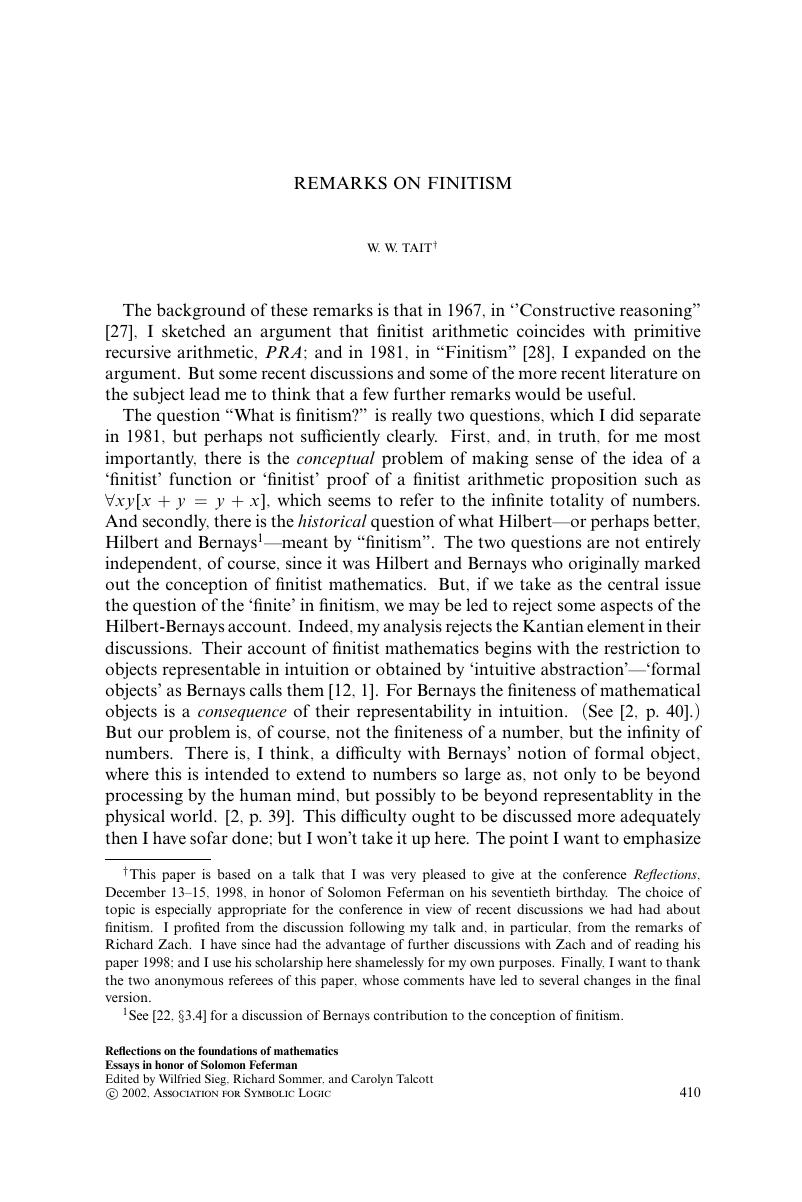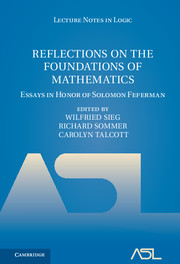Book contents
- Frontmatter
- Preface
- Contents
- PART I PROOF THEORETIC ANALYSIS
- PART II LOGIC AND COMPUTATION
- PART III APPLICATIVE AND SELF-APPLICATIVE THEORIES
- PART IV PHILOSOPHY OF MODERN MATHEMATICAL AND LOGICAL THOUGHT
- On the constructivity of proofs. A debate among Behmann, Bernays, Gödel, and Kaufmann
- Realism and the debate on impredicativity, 1917-1944*
- Calculations by man and machine: conceptual analysis*
- Remarks on finitism
- Logical constants: the variable fortunes of an elusive notion
- Symposium program
- References
Remarks on finitism
from PART IV - PHILOSOPHY OF MODERN MATHEMATICAL AND LOGICAL THOUGHT
Published online by Cambridge University Press: 31 March 2017
- Frontmatter
- Preface
- Contents
- PART I PROOF THEORETIC ANALYSIS
- PART II LOGIC AND COMPUTATION
- PART III APPLICATIVE AND SELF-APPLICATIVE THEORIES
- PART IV PHILOSOPHY OF MODERN MATHEMATICAL AND LOGICAL THOUGHT
- On the constructivity of proofs. A debate among Behmann, Bernays, Gödel, and Kaufmann
- Realism and the debate on impredicativity, 1917-1944*
- Calculations by man and machine: conceptual analysis*
- Remarks on finitism
- Logical constants: the variable fortunes of an elusive notion
- Symposium program
- References
Summary

- Type
- Chapter
- Information
- Reflections on the Foundations of MathematicsEssays in Honor of Solomon Feferman, pp. 410 - 419Publisher: Cambridge University PressPrint publication year: 2002
References
- 6
- Cited by



